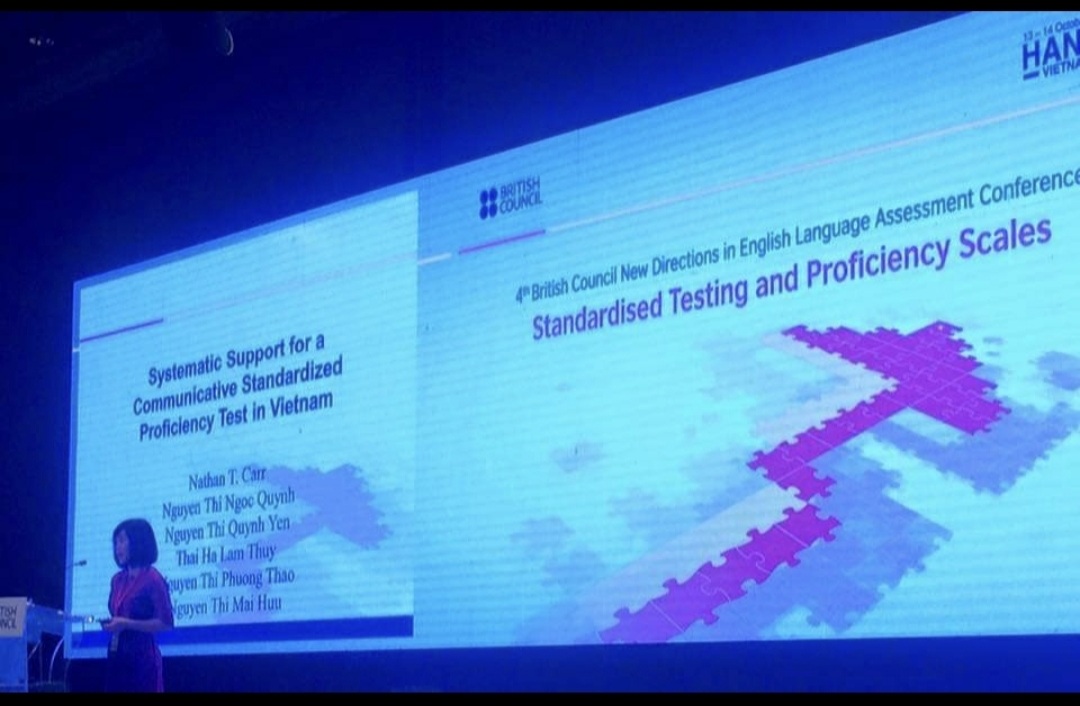Báo cáo khoa học tại Hội nghị quốc tế: Systematic support for a communicative standardised proficiency test in Vietnam
Bài trình bày tại Hội nghị về khảo thí và ngôn ngữ tiếng Anh New Directions lần thứ 4 do Hội đồng Anh tổ chức tại Hà Nội, Việt Nam ngày 13-14 tháng 10 năm 2016
Nhóm tác giả:
Nguyễn Thị Phương Thảo (ULIS, VNU)
Nathan Carr (California State University)
Nguyễn Thị Ngọc Quỳnh (ULIS, VNU)
Nguyễn Thị Mai Hữu (ULIS, VNU)
Nguyễn Thị Quỳnh Yến (ULIS, VNU)
Abstract: The Vietnamese Standardised Test of English Proficiency (VSTEP) is a test of general English proficiency developed as part of Vietnam’s National Foreign Language Project 2020. The test is based on the Common European Framework of Reference, and targets levels B1-C1. The VSTEP consists of sections assessing reading, writing, speaking, and listening, with all four sections taken by all test takers. This inclusion of performance-based tasks in a large-scale language proficiency test is intended to promote positive washback from the test, and to shift the focus of English instruction in Vietnam toward a more communicative orientation.
This paper describes the VSTEP validation project currently underway, which follows an argument-based approach to validation (Bachman & Palmer, 2010; Chapelle, Enright, & Jamieson, 2008; Kane, 1992). The paper outlines the types of qualitative and quantitative evidence being collected to support the claims made about the test. Following Bachman and Palmer’s approach of constructing an assessment use argument, the validation project aims to provide systematic support for claims that test scores and descriptions of examinee performance consistently and properly represent test takers’ performance on the test; that interpretations of test scores are appropriate; that decisions made on the basis of test scores are equitable and values-sensitive; and that the consequences of using the VSTEP are beneficial to stakeholders. Preliminary findings on selected portions of the assessment use argument will be presented to illustrate the ways in which the validation framework is being used to provide systematic evidence for the use of the VSTEP.
Các nhà nghiên cứu, độc giả quan tâm có thể đọc và tải báo cáo đầy đủ tại: https://www.britishcouncil.vn/sites/default/files/new_directions_2016_nathan_carr_systematic_support_for_a_communicative_standardized_proficiency_test_in_vietnam.pdf


